
Wicked begins in the aftermath of Dorothy Gale’s arrival in Oz — the famous story recounted in L. Frank Baum’s The Wizard of Oz. The Wicked Witch of the West has died and the Wizard has departed for territories unknown. Glinda, the Witch of the North, announces these developments to the people of Oz, and begins to relate a story that began years earlier… when she and the Wicked Witch were actually roommates. Thus begins a contender for the biggest — and best — movie of the year.
How Wicked Connects to The Wizard of Oz
The Film Is Based on Gregory Maguire’s Book of the Same Name
Before she became the Wicked Witch of the West, Elphaba Thropp was born to Frexspar Thropp, Governor of Munchkinland, and his boozy wife Melena. Elphaba grew up ostracized by other children for her green skin color, with her wheelchair-bound sister Nessarose being the beloved child in the family. As a young adult, Nessarose enrolls at Oz’s prestigious academic institution Shiz University, The school’s headmistress, Madame Morrible, sees something magical in Elphaba, who decides to attend alongside Nessarose and ends up rooming with Glinda. The roommates immediately clash — with the effervescent social-climbing Glinda baffled by the bookish, withdrawn Elphaba.
But Glinda and Elphaba develop an unlikely friendship, crusading for animal rights in Oz under the tutelage of history professor Doctor Dillamond (a CGI goat voiced by Brothers star Peter Dinklage). Dillamond warns his students that someone in Oz wants to rob animals of the ability to speak — before soldiers kidnap him one day during class. Elphaba and Glinda uncover a sinister plot to use the animals in Oz as a source of food for humans. The pair journey to the Emerald City to meet the Wizard of Oz and appeal for his help in stopping the animal genocide, but make a terrible discovery instead.
Elphaba vows to free the animals, but the rest of the Ozians deeming her “wicked” for her transgressions against the established order. The now well-known story provides a different perspective on the infamous character from The Wizard of Oz, and it translates very well to the big screen. The movie adaptation preserves the plot and then builds upon it to create something as epic as audiences will be yearning for.
Wicked Reimagines the Land of Oz in Epic Scope
One of the Best Looking Movies in Several Years
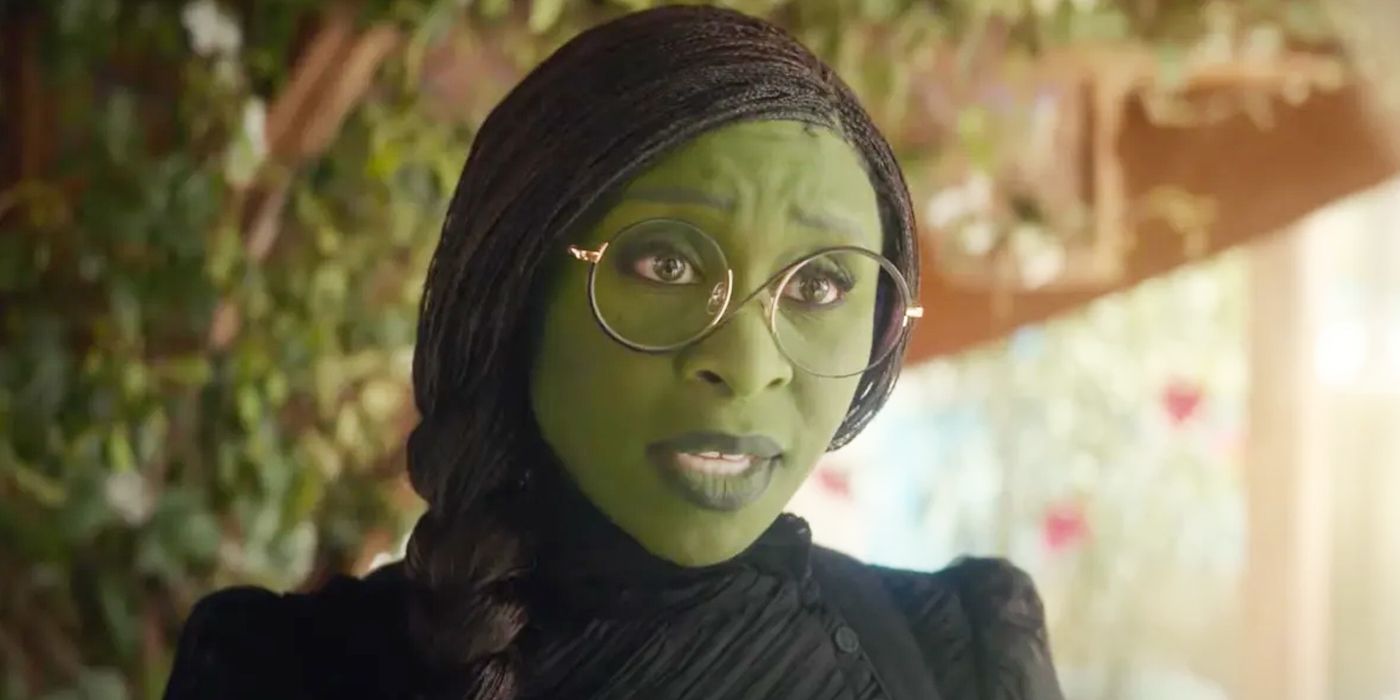
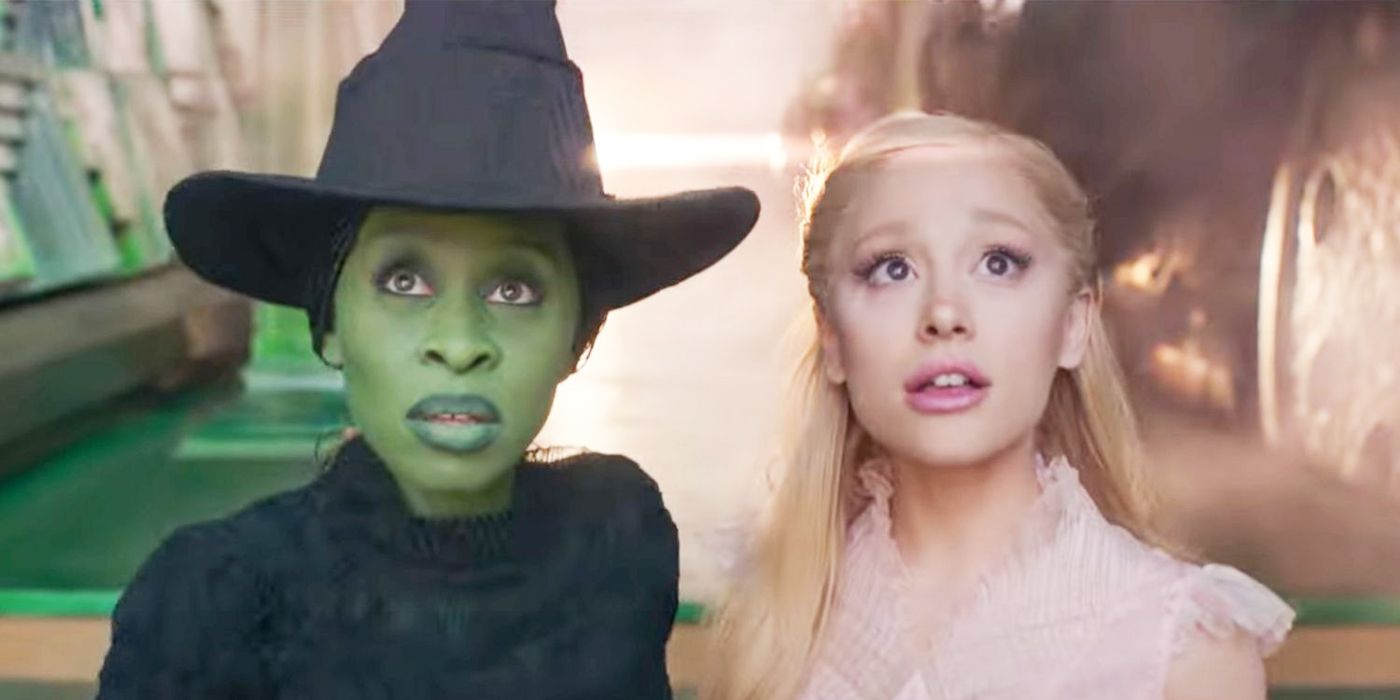
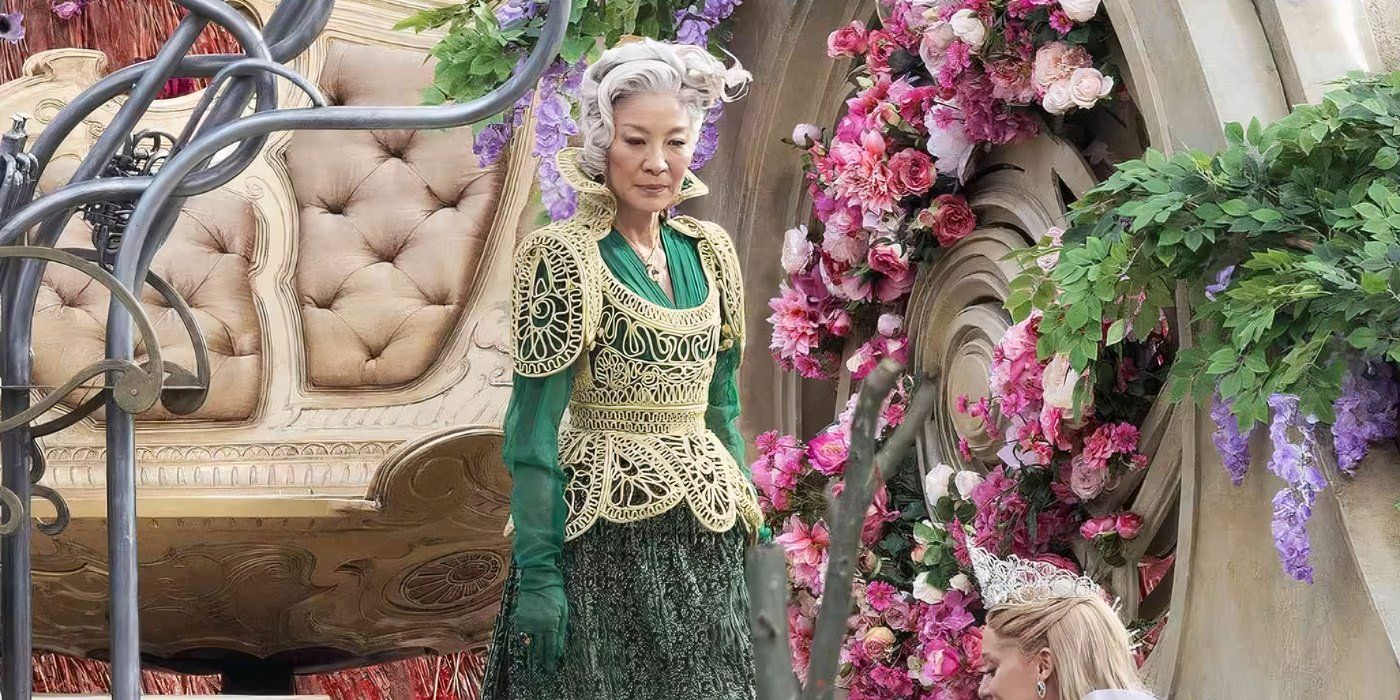
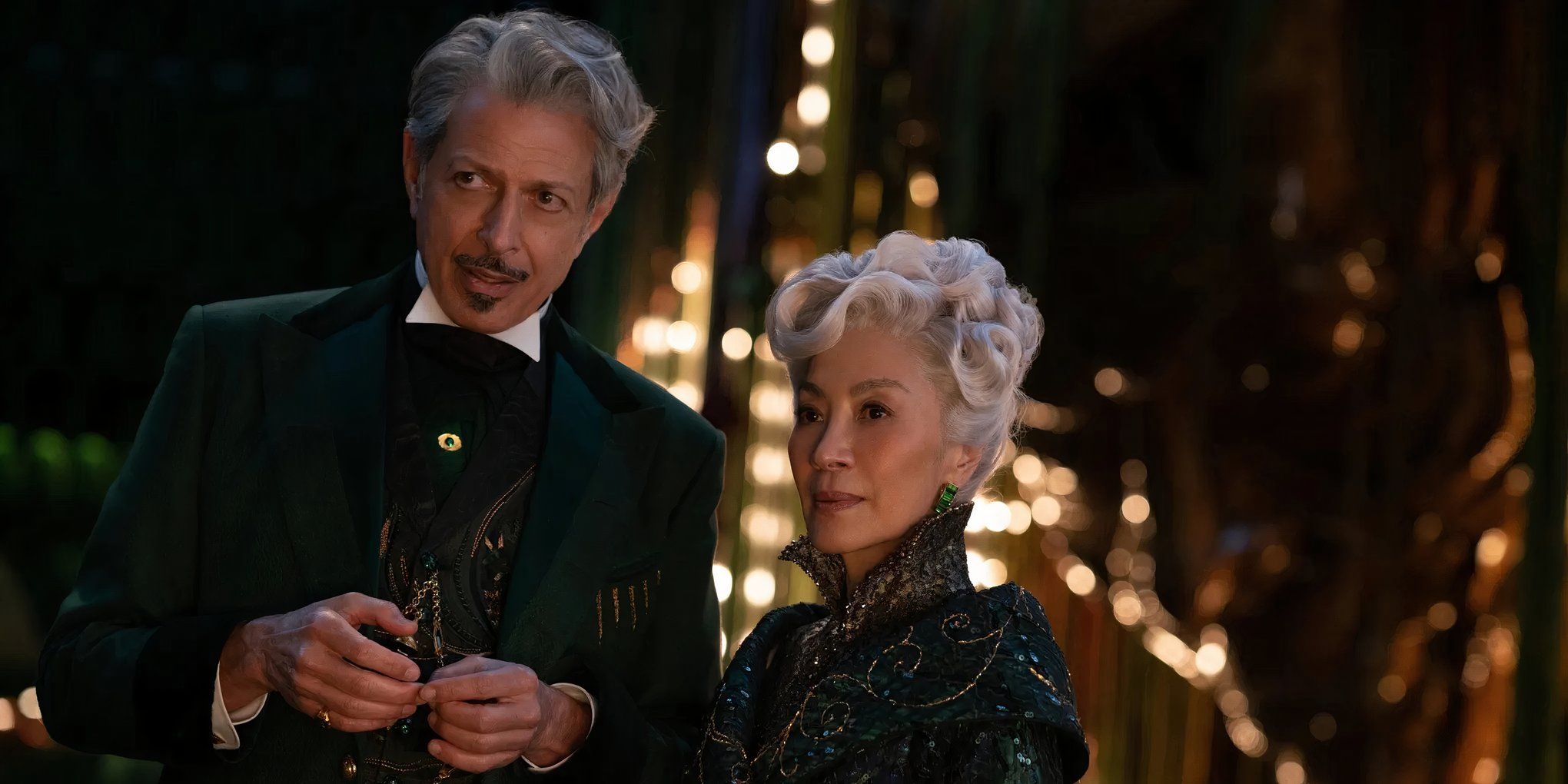
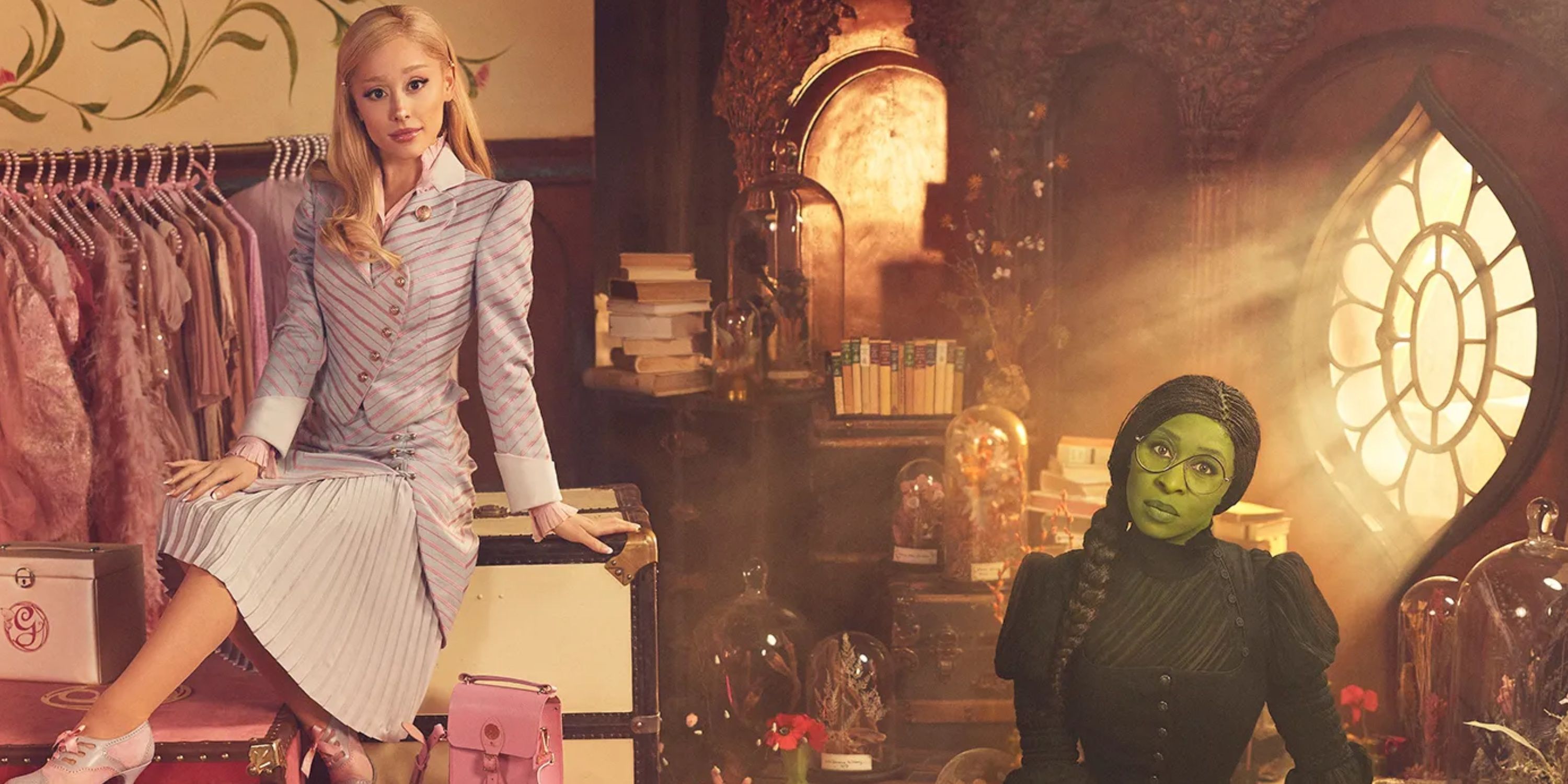





Wicked director Jon M. Chu opens the film with a sweeping shot of Oz as Glinda begins to relate the story, which shows off one of the movie’s greatest strengths: Nathan Crowley’s production design. Crowley has designed some great-looking movies before, including the Dark Knight trilogy, but outdoes himself here. Wicked comes close to realizing the Oz that Baum and Maguire envisioned. Lush with greenery, fields of colorful flowers, and cities that seem to have sprung from Grimm’s Fairy Tales, this Oz combines the best elements of the Harry Potter series, Willy Wonka and the Chocolate Factory and The Wizard of Oz all at once.
Keen-eyed viewers will also notice how Crowley and Chu work shades of pink and green into almost every frame of the film, underlining the competition between the green-skinned Elphaba and the pink-loving Glinda. Other environments — including a library made of round bookshelves and the Art Deco steampunk vibe of the Emerald City — make the Wicked movie a sweet feast for the eyes. The imagination realized here ranks Wicked as one of the best-looking movies in recent memory and that is enough of a reason to see it on the big screen, before even considering the tremendous talent involved.
Wicked Says a Lot Between the Lines
The Movie Has Plenty of Subtext
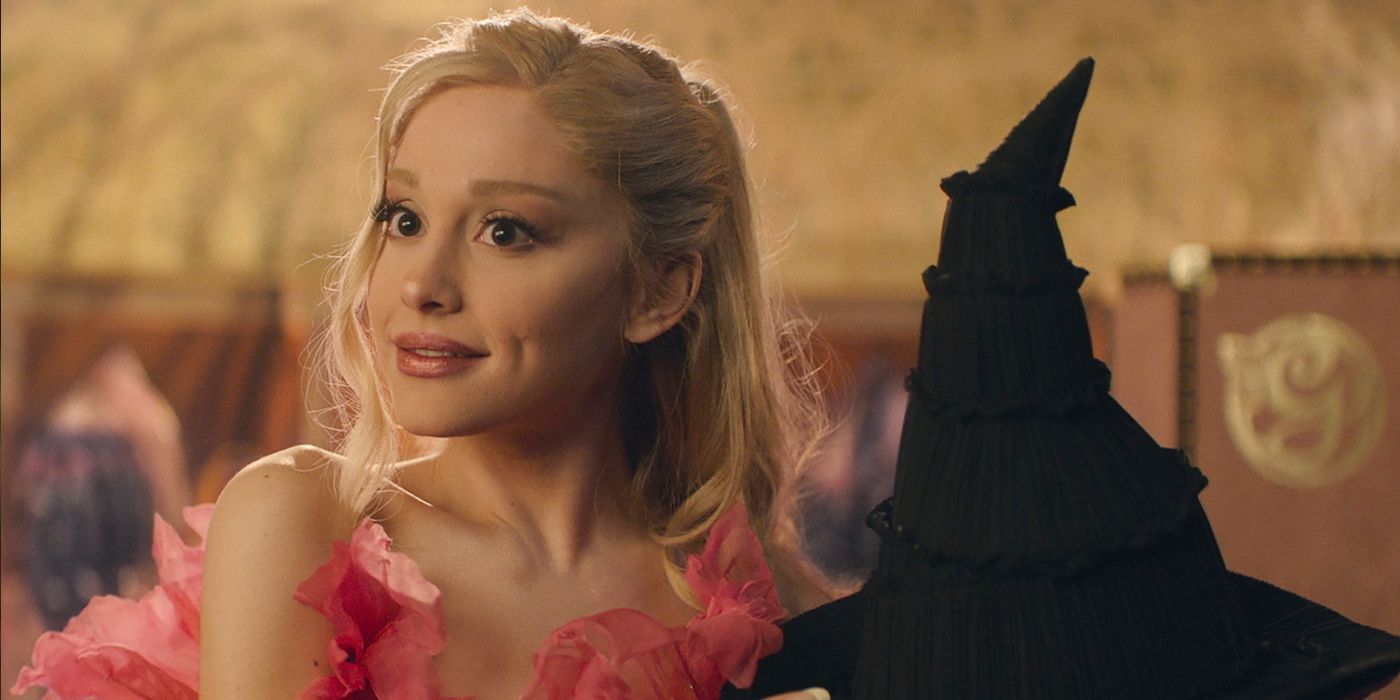
Wicked screenwriters Winnie Holzman — who penned the book for the Broadway musical — and Dana Fox provide a strong story and memorable characters to occupy all the visual majesty. Maguire’s novel presented Oz as an analogue for the United States at the beginning of the 21st century: a nation prone to religious fanaticism, despotic leaders and demonizing the “other.” Like the stage version, the movie tones down most of its adult content to attract a family audience.
Still, Holzman and Fox manage to intimate some of these themes in such a way that viewers — including children — can understand them. Not too many movies deal with genocide, for example, in a way a five-year-old could digest it without screaming in terror. The storytelling in Wicked has a stealth sophistication to it. Viewers of all ages will take in more than they realize.
Musicals have long defeated even the most talented directors, who fail to keep characters busting out into song and dance from coming off as silly. Chu — who also directed the underrated movie adaptation of In the Heights — proves his mettle here, often filming the musical numbers in long, unbroken takes that show off the talents of his cast and the epic scale of his production. Only “What Is This Feeling?” falls into the trap of feeling like a music video, interrupting the narrative with its quick cuts and posing.
On the whole, Chu adheres to what Martin Scorsese once said about action scenes: they require planning and choreography, like a big song and dance sequence. For proof, look no further than the staging of Wicked’s best song, “Defying Gravity.” On stage, it’s a thundering crowd-pleaser. Chu makes it into a full-on action climax, and a total knockout: quite simply one of the best musical numbers ever to hit the big screen.
Wicked’s Terrific Cast Brings Oz to Life Again
The Actors Should Receive Some Oscar Recognition
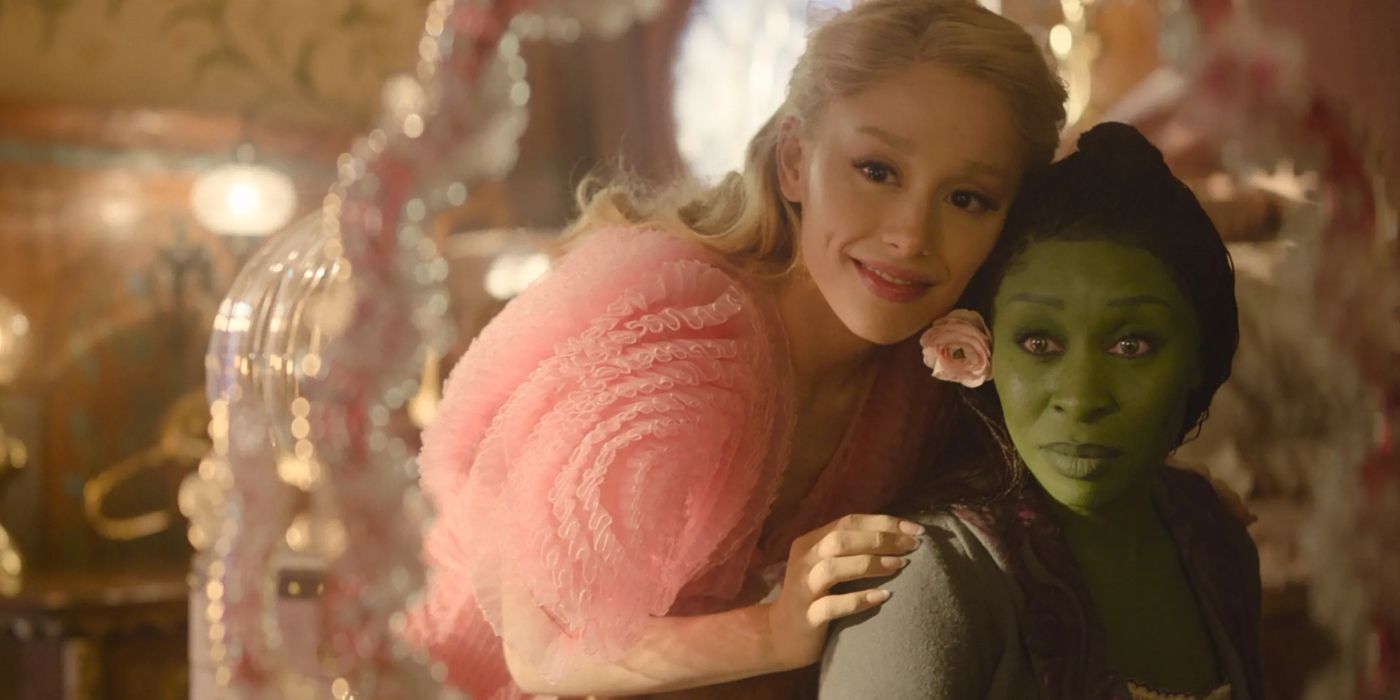
It helps, of course, that Chu allies himself with some incredible performers. Tony Award winner Erivo makes Elphaba into someone torn between her introverted nature and her passions. When she sings, she full-on explodes, her soaring voice roaring off the screen. Jonathan Bailey, as Fiyero, shows off a previously unseen gift for song and dance.
Whereas the stage version presents Morrible as a one-note villain who would twist her mustache if she had one, Star Trek: Section 31 star Yeoh approaches the movie role with a certain stillness. Her Morrible does plenty of dastardly deeds, but always with a Mona Lisa smile. Likewise, Goldblum finds an unexpected complexity as the Wizard. He only has a few scenes in Wicked Part 1, but the actor still manages to give one of his best performances ever. He plays the Wizard as a mix of Walt Disney and Joseph Stalin: he’s a visionary who wants to make dreams come true, as long as he gets what he wants first.
Yet Ariana Grande-Butera makes the biggest splash in Wicked. She plays Glinda with a certain theatricality — all poses, gestures and affect. For a character whose personality seems like one big performance, that choice pays off again and again. Grande-Butera also shows off a newfound vocal range and technique, as well as being an expert dancer and having a natural talent for comedy. Chu further uses Grande’s more affected acting style as a contrast to Erivo’s naturalism. Doing so highlights the clash between the two characters and the mutual respect they develop for one another.
The Wicked Movie Surpasses the Broadway Musical
The Film Benefits From Its Blockbuster Resources
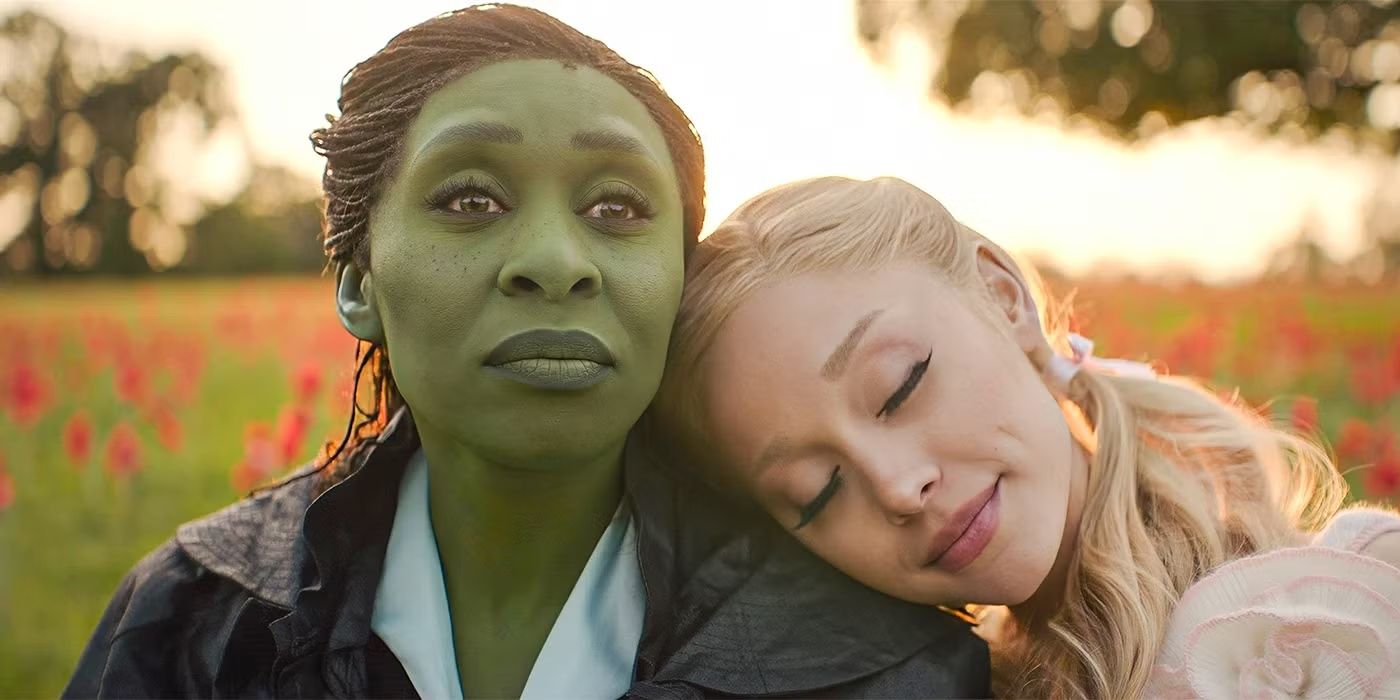
Fans of stage musicals have a predisposition for harsh judgment of the movie version. The announcement that Universal would release Wicked as two movies instead of one was met with skepticism. But the choice to divide Wicked pays off. Relationships in the movie have more dimensions. Characters have clearer motivations. Scenes have a chance to breathe. Coupled with the scope of cinema and special effects movie magic, Wicked surpasses its Broadway counterpart in multiple ways.
Wicked is a cinematic triumph for all involved — worthy of mention alongside the greatest movie musicals, including The Wizard of Oz itself. Oz fans will find plenty of references to that classic film here, as well as a pair of cameos that feel less like fan service than a natural extension of the movie. Universal, which became the first major studio to win a Best Picture Oscar in more than a decade thanks to Oppenheimer, may have another reason to celebrate next awards season. Wicked will almost certainly score Oscar statuettes in technical categories, while Erivo, Grande-Butera and Goldblum also have a shot at acting nominations. Chu deserves the most acclaim for showing off so much range in a single film.
Wicked never feels overly beholden to its stage counterpart or the cinematic classic that shaped it. Even if The Wizard of Oz itself never existed, this movie incarnation of Wicked would still rank as a triumph of splendor and story. It’s one of the best movies of 2024, both in front of and behind the camera.


